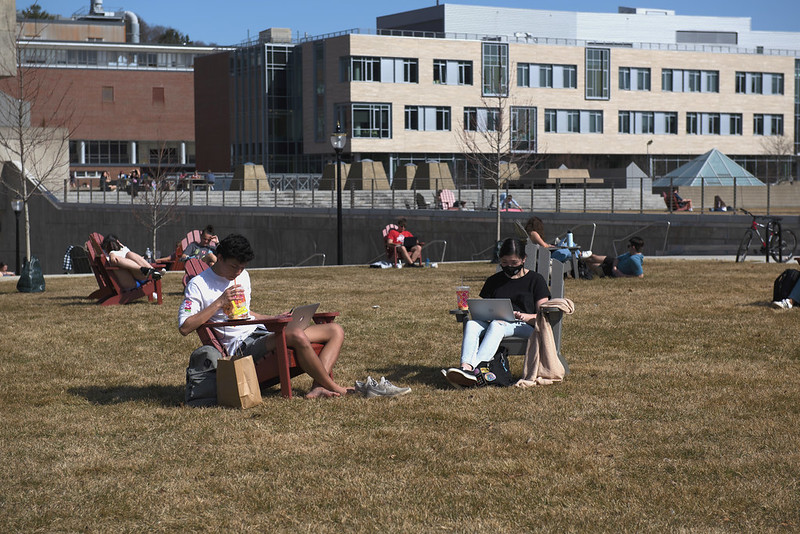Editor’s Note: Some of the quotes contained in this article have been reworded to fit an eighth grade reading level.
A vegan, a man over six feet tall and an introvert walk into a party. Who tells you what they are first? You guessed correctly. The STEM major! Despite not being included in our hypothetical scenario, the STEM major has managed to infiltrate the imaginary venue and is telling partygoers about how he must “leave the party soon to go study” and that he would “totally stay if he was also unambitious.”
While those lazy business majors get wasted in a grungy basement, the STEM major has other plans. Nothing out of the ordinary, he plans to do homework and study into the early hours of the morning before he falls asleep brainstorming new ways to tell people, “No, I actually own multiple of this same outfit.”
How long can such inspiring and self-sacrificing stories like this go unrecognized? In 2022, it seems that many of America’s budding Einstein’s are hoping that will change.
In protest of business and liberal arts curricula around the country consisting of bird watching, piñata smashing and naptime, a union of STEM majors here at the University of Massachusetts has petitioned a national holiday to recognize their rigorous commitment to academia. “National STEM Day” (originally spelled “Nashunal STEM Day” on legal documents) seeks to allow STEM majors an entire day of rebuking liberal arts majors, sans the social repercussions. To be celebrated on March 2 annually, the petitioners aimed to overshadow “National Read Across America Day,” a reading-initiative holiday penned by the Dr. Seuss foundation.
“We don’t like literacy; it’s bad business,” the union proudly declares in the section of their proposal titled “01101110 01110101 01101101 01100010 01100101 01110010 01110011 00100000 01100001 01110010 01100101 00100000 01100010 01100101 01110100 01110100 01100101 01110010 00100000 01110100 01101000 01100001 01101110 00100000 01110111 01101111 01110010 01100100 01110011 00001010.” One potential event planned for the inaugural observation of the holiday has been described as “printing out Glassdoor salary estimates for STEM careers and sticking them on art school campuses around the nation.” The union also says they hope the holiday will allow STEM majors to extend a hand of intellectual superiority over humanities students, without getting laughed at (my words, not theirs, BTW).
Other STEM students weighed in on this issue, such as freshman computer science student “X” who told our reporter, “It’s not our fault that we’re better than them. Some people are just stupid and that’s okay.” In response, I asked him if he thought his stance was one-dimensional and unnuanced and he retorted with, “This is why you’re a journalist, you can’t think critically!”
So why is there such a contentious divide between literal fields of study? According to STEM majors, the life of a humanities student is the epitome of luxury and indiscipline. They’re upset that we get to do absolutely nothing. It’s a stress-free affair: no homework, no exams and no hardships. This semester my 400-level journalism course consisted of watching local news bloopers on YouTube and studying the character arcs of fictional journalists like Rory Gilmore from TV series “Gilmore Girls” and Peter Parker from beloved “Spider-Man.”
There were less than twenty students in attendance, many of which were too preoccupied with the realization that they’re wasting their lives away to participate in another Tom Holland vs. Andrew Garfield debate. I put my sticker under both names and was too unmotivated to show up to that class ever again. It’s okay though, I’m on the path to becoming a broke, starving artist anyway.
All in all, it seems this holiday rightfully celebrates the ultimate sacrifice STEM students take to secure self-actualization and highlights how every other field of study poses no significant benefit to society or the world. Good riddance, reading, Dr. Suess was problematic anyway.
Paris Geller cannot be reached. She is a fictional character.


















